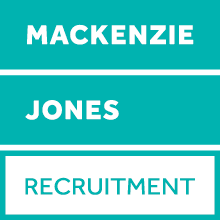December 23, 2019
Many people associate a personal development plan with the early stages of their career. Added responsibility at work, combined with ever growing family and personal commitments often doesn’t allow much time to truly reflect on where you’re heading.
Evaluating and investing in your own personal and professional development not only improves your career progression prospects, both internally and externally, but it also encourages you to engage and stay relevant in your industry.
Do you have an existing personal development plan in place?
Asking this question is a good starting point and it’s key to remember that a personal development plan can take a variety of forms, dependant on where you’re at in your career. You may have discussed this with your line manager and put together a clearly defined and measurable employee development plan, or it may be something more personal to you outlining clear aspirations, goals and timelines you are independently working towards. Once you’ve considered this it’s useful to assess how effective your plan is, question;
- Are you excited, encouraged and motivated to achieve what’s outlined in your plan?
- Does your existing personal development plan include quantifiable and realistic goals?
- Has your plan been developed with your potential, post-promotion responsibilities in mind?
- Is your progress being monitored, with a dialogue between you and decision makers?
- Are you being given opportunity to gain feedback regularly?
The current job market suggests that those with clearly defined goals and aspirations are more likely to succeed. By ensuring you have a clear path to guide your development you are providing quantifiable targets to demonstrate your professional achievements.
Is There Opportunity to Grow in Your Current business?
Continuing professional development should be a regular consideration, rather than just a topic discussed during annual reviews – a successful business should be investing in their employees and encouraging them to continuously improve. That being said, individuals should also be proactive, identifying and vocalising development areas and aspirations. If you’re doing this, but still not gaining the desired level of recognition it may be time to take stock.
If you don’t believe you’re developing at a quick enough rate it might be worth asking yourself why this is? Are your expectations realistic? In a competitive market simply being in role for 18 months doesn’t automatically justify a promotion. Are you communicating your aspirations effectively with the business, and are they supporting this through assisting in developing your personal development plan? Timing and positioning can be everything.
If you answer yes to the above, then it may be that you’ve simply outgrown your current role or business and it’s possibly time to look for a new challenge elsewhere.
Are You Active and staying relevant within your industry?
Staying up to date with your industry will hugely benefit your professional development. When you’re operating in a niche market it’s important to stay up to date with trends, regularly sharing insights and networking. When individuals begin to consider their next move, it can come as a surprise when they aren’t inundated with calls and job opportunities, however, not regularly interacting with your network can hugely impact your development opportunities and it’s key to remain on people’s radar. Whether you choose to send a quick text to a former colleague, grab a coffee with a specialist recruiter or even share an interesting piece of industry news on LinkedIn, these little bits of activity go a long way and will ensure you remain at the forefront of people’s minds.
This should still be a key consideration when creating an employee development plan with your current workplace in mind. By staying up to date with industry trends and insights, it will be easier to pinpoint where you can add value in your current role, strengthening your position when negotiating promotions and influencing internal stakeholders.
Whether you are looking to form a clear progression pathway within your current workplace, or evaluating whether it’s time to move on, creating a strong and defined plan is instrumental in your professional development.

